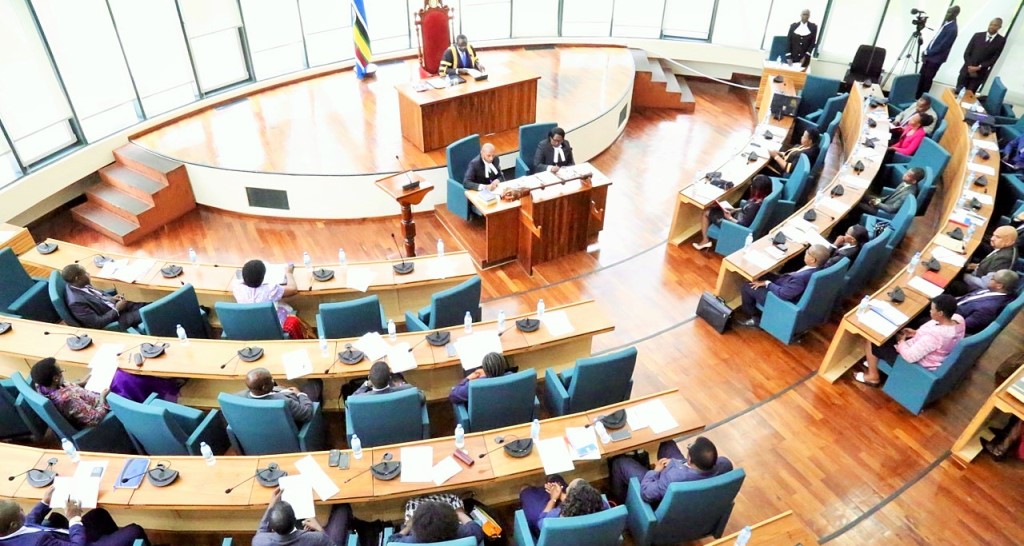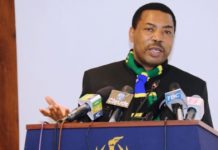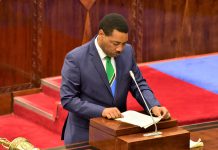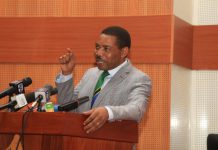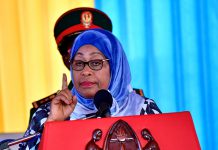AfricaPress-Tanzania: THE National Assembly resumes business on Tuesday after the Easter break, with legislators set to deliberate on the third National Development Plan slated for 2021/2022 to 2025/26.
According to the schedule released by the Parliament, the plan will be tabled in the House this week by the Minister for Finance and Planning, Dr Mwigulu Nchemba and the MPs are expected to spend three days debating the plan.
The three-month budget session which kicked off on March 30, this year, will principally review and approve the government budget for the 2021/2022 financial year, before June 30, this year to pave way for the start of the new financial year on July 1.
The plan proposals which were tabled in the House recently by the then Minister for Constitutional and Legal Affairs, Dr Mwigulu Nchemba on behalf of the then Minister for Finance and Planning Dr Philip Mpango, who is now vice-president, is expected to cost 114.8tri/-.
According to Dr Nchemba, through the plan, the public sector is expected to spend 74.2tri/- while the remaining 40.6tri/- is set to be spent in the private sector.
The plan that aims at strengthening the country with the competitive industrial economy would be implemented along with five priorities that are influencing the competitive economy, enhancing more production capacity in the available industries, supporting growth of business, paying attention to people’s development as well as supporting human resources management.
He said the plan has also regarded the inaugural speech by the late President John Magufuli in the 11th and 12th Parliaments, five-year development plan and other related documents from research for higher learning institutions.
According to the minister, the implementation of the fiveyear National Development Plan will be achieved where there is a sustainable peace, unit and tranq uility, as well as the country’s ability to face an eruption of diseases and natural hazards, as well as effective participation of the private sector and improved production in the agriculture sector.
The plan also among other things focuses on increasing the annual national income from 6 per cent in 2021 to 8 per cent in 2026, with the collections in local government councils being expected to increase from 15.9 per cent in 2021/22 to 16.8 per cent in 2025/26.
“ The inflation is expected to remain on single digit form, at a range of between 3 and 5 per cent respectively,” Dr Nchemba said.
He said the reserve in foreign currency on import of goods and services will continue to meet the ceiling of a minimum of four months, as well as active involvement of the private sector in creating eight million new jobs between July 2021 and June 2026.
In the coming financial year, the government is expected to start implementing development priorities highlighted in the third five-year development plan which reflects the country’s development blueprint, Vision 2025 to build a competitive industrial economy and improve the welfare of the people.
In the 2021/22 financial year, the government intends to finalise implementation of strategic projects promoting industrial growth, ensure a conducive business and investment climate and improvement of infrastructures such as railways, roads, marine and aviation services, he stated.
Efforts will also be directed towards the improvement of processing factories for agricultural and livestock products and several other strategic projects that are likely to boost economic growth such as the 2,115MW Julius Nyerere Hydropower Project, construction of the Standard Gauge Railway (SGR), the Uganda/Tanzania crude oil pipeline and construction of Kigongo – Busisi bridge in Mwanza, plus Tanzanite bridge and Kamata flyover in Dar es Salaam.


